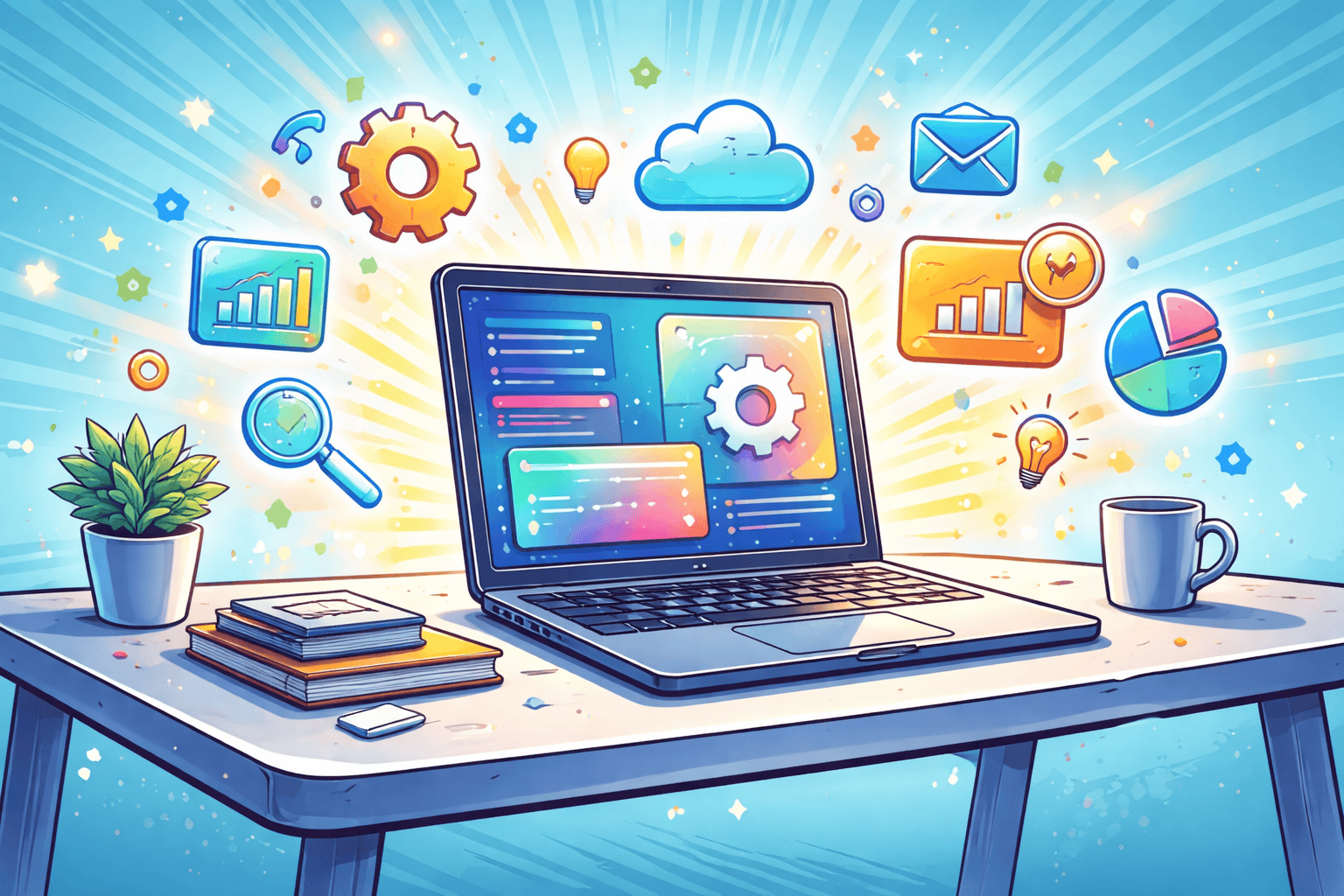How to Use Boilerplates to Build a SaaS Product
 Paul Therbieo
Paul Therbieo
How to Accelerate SaaS Development with Boilerplates
Understanding Boilerplates
Building a SaaS product from scratch can be a daunting task. It involves setting up the infrastructure, implementing core features, and ensuring everything works seamlessly. This is where boilerplates come in handy. A boilerplate is a pre-built template that provides a foundation for your project, saving you time and effort in the initial setup phase.
Boilerplates typically include:
- Basic project structure
- Essential dependencies and configurations
- Common features like authentication and database setup
- Best practices for code organization
By using a boilerplate, developers can focus on building the unique features of their SaaS product rather than reinventing the wheel for common functionalities.
Benefits of Using Boilerplates
The advantages of using boilerplates in SaaS development are numerous:
| Benefit | Description |
|---|---|
| Time Savings | Reduce development time by up to 50% |
| Consistency | Ensure a standardized codebase across projects |
| Best Practices | Leverage industry-standard patterns and architectures |
Using a well-designed boilerplate can significantly accelerate your time to market. This is crucial in the fast-paced world of SaaS, where being first can often mean the difference between success and failure.
Choosing the Right Boilerplate
Selecting the appropriate boilerplate is crucial for the success of your SaaS project. Consider the following factors:
- Tech stack compatibility
- Included features and integrations
- Community support and updates
- Scalability potential
It's important to choose a boilerplate that aligns with your project requirements and team expertise. For instance, if you're building with Next.js, you might want to look for nextjs templates or a nextjs starter template that suits your needs.
Popular Boilerplate Options
There are several excellent boilerplate options available for SaaS development. Let's explore a couple of popular choices:
ShipFast
ShipFast is a comprehensive NextJS boilerplate designed to help you build your SaaS, AI tool, or any other web app quickly. It includes:
- SEO optimization
- Email integration
- Stripe payment processing
- Authentication system
- Database setup
You can find more details about ShipFast at https://shipfa.st.
Supastarter
Supastarter offers production-ready SaaS app templates for Next.js & Nuxt. It comes with:
- Authentication and API setup
- AI integration capabilities
- Database configuration
- Multiple payment options (Stripe and Lemon Squeezy)
Learn more about Supastarter at https://supastarter.lemonsqueezy.com.
While these options are great, it's worth noting that BoilerplateHub.com offers a curated selection of boilerplates, including these and many others, making it easier to compare and choose the right one for your project.
Customizing Your Boilerplate
Once you've selected a boilerplate, the next step is to customize it to fit your specific needs. This process typically involves:
- Removing unnecessary components or features
- Adjusting the styling to match your brand
- Implementing your unique business logic
- Integrating additional third-party services
Remember, a boilerplate is a starting point, not a finished product. It's crucial to tailor it to your specific requirements to create a unique and competitive SaaS solution.
| Customization Area | Importance | Typical Time Investment |
|---|---|---|
| UI/UX Design | High | 1-2 weeks |
| Core Features | Critical | 2-4 weeks |
| Integrations | Medium | 1-3 days per integration |
Best Practices for Using Boilerplates
To make the most of your chosen boilerplate, consider these best practices:
- Thoroughly review the boilerplate's documentation
- Keep the original structure intact where possible for easier updates
- Contribute back to the boilerplate community if you make improvements
- Regularly update dependencies to maintain security and performance
Adopting these practices will help you maintain a clean, efficient, and scalable codebase as your SaaS product grows.
Wrap-up
Boilerplates are powerful tools for accelerating SaaS development. They provide a solid foundation, allowing developers to focus on building unique features rather than reinventing common functionalities. By choosing the right boilerplate and customizing it effectively, you can significantly reduce development time and get your SaaS product to market faster.
If you're looking for a comprehensive selection of boilerplates to jumpstart your SaaS project, BoilerplateHub.com offers a curated platform with a wide array of options. It's designed to help developers find the ideal starter kit for their specific needs, ensuring a smooth and efficient development process.
FAQ
Q: Are boilerplates suitable for all types of SaaS projects?
A: While boilerplates can be beneficial for many SaaS projects, they may not be ideal for highly specialized or unique applications. Evaluate your project requirements carefully before deciding to use a boilerplate.
Q: How much time can I save by using a boilerplate?
A: The time saved can vary, but many developers report cutting initial setup and development time by 30-50% when using a well-suited boilerplate.
Q: Can I use multiple boilerplates for a single project?
A: While it's possible to combine elements from different boilerplates, it's generally recommended to choose one primary boilerplate to maintain consistency and avoid conflicts.
